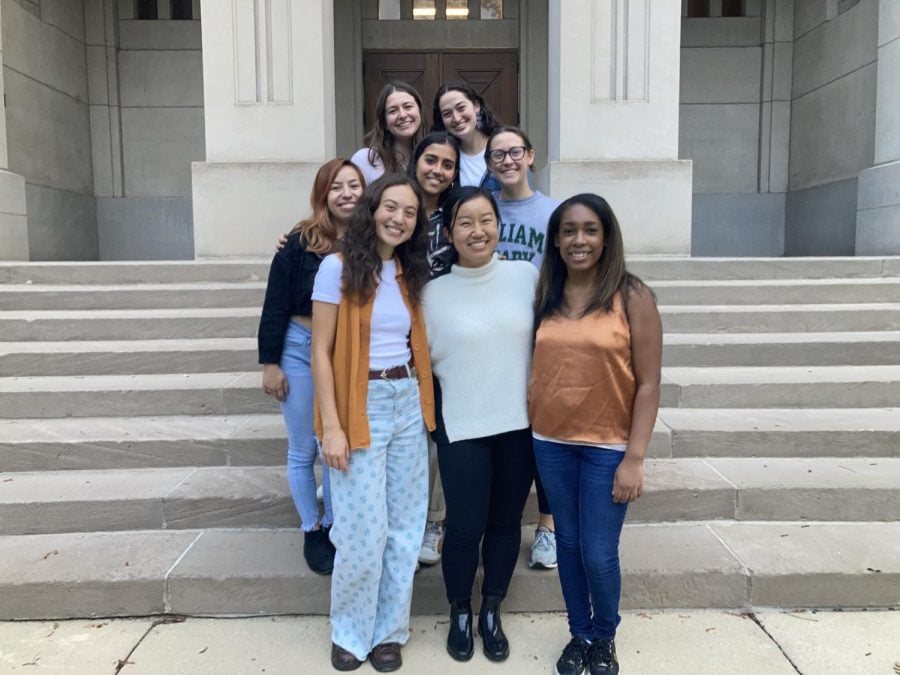Psychology Prof. Renee Engeln researches body image and media with her Body and Media Lab
Photo courtesy of Renee Engeln
Engeln’s Body and Media lab members (“BAMs”) smile for a photo. The BAMs work with Renee Engeln to research issues surrounding women’s body images.
January 4, 2022
Psychology Prof. Renee Engeln’s Body and Media Lab illuminates how society’s obsession with beauty harms women.
Engeln’s research explores cultural practices that damage the relationships between women and their bodies. She delves into topics like negative body talk, sentiments about idealized media images and the adoption of outsiders’ views on physical appearance. According to Engeln, many young women struggle with body image and there is immense pressure to conform to unrealistic and often discriminatory beauty and body ideals.
The lab is researching how to improve fitness experiences for women. It ran a fitness class over Zoom and monitored how exercise affected the participants’ mood and body image thoughts.
“If you’re thinking about how your body looks while you work out, it’s bad news,” Engeln said. “It makes you enjoy your exercise less, it makes you less likely to want to do more exercise, it keeps you from getting the body image benefits that exercise usually brings.”
The lab concluded that fitness facilities and instructors should promote exercise by emphasizing its health and wellness benefits rather than focusing on weight loss or changes to physical appearance.
Last fall, Engeln and other lab researchers wrote an op-ed in the Chicago Tribune about their study, which explained why women’s clothing, like high heels and extremely form-fitting apparel, is painful and distracting to wearers. She discussed how such clothing correlates to higher “body surveillance,” a chronic monitoring of your appearance that can harm mental health.
Weinberg senior and lab worker Nina Sachs said Northwestern is a “hotbed” for body comparison and media exposure. She said she appreciates how the lab’s research explores how women experience and treat their bodies.
“Having information on what that kind of exposure can do to us and what things we can do to improve (how) we see our bodies and view other people’s bodies can make for an environment that is hopefully less competitive and comparative,” Sachs said.
Sachs hopes the lab’s research will help cultivate a culture that is more holistic in nature.
Engeln said the current climate is toxic and encourages personal judgement about appearance. She said this relates to a lot of struggles NU students may connect with, such as disordered eating.
“These aren’t a healthy set of ideals that we’re asked to aspire to,” Engeln said. “And that has a real impact on people’s lives.”
Weinberg senior Harlym Pike, who also works in the lab, said understanding the psychology behind beauty and body image is important because of their effects on relationships, mental health and other aspects of life.
Pike’s work in the lab has helped her learn more about body image and its importance, particularly among college students, she said.
“Having an awareness of these patterns and relationships that exist around this topic is important to shift perspectives…and hopefully make positive change in our society when it comes to body image,” Pike said.
Pike said the work by the Body and Media lab and other related labs demonstrate the importance of empirically studying how technology and media impact body image.
“I want to live in a world where students in my class can be focused on learning and not be worried about their hair or their makeup or their clothes or whether they’ve gained or lost weight,” Engeln said. “To me, that’s a much healthier setting for us all to live in.”
Email: chiarakim2025@u.northwestern.edu
Twitter: @chiarafkim
Related Stories:
— Students navigate Northwestern Dining and ‘skinny dinner’ culture with an eating disorder
— NU psychology professor publishes book on negative impacts of beauty standards on women



